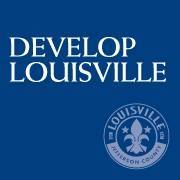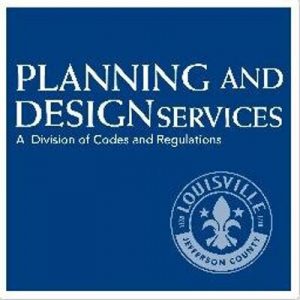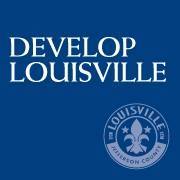 Mayor Fischer has announced today that Develop Louisville’s Office of Advanced Planning will issue a Request For Proposal to create a master plan for Broadway between Shawnee Park and Baxter Avenue. The city is seeking proposals that will transform the corridor, as envisioned by Move Louisville, from its existing auto-centric form into a multi-modal “complete street” designed to enable safe, convenient, and efficient access with a focus on premium transit that will serve as a catalyst for economic development.
Mayor Fischer has announced today that Develop Louisville’s Office of Advanced Planning will issue a Request For Proposal to create a master plan for Broadway between Shawnee Park and Baxter Avenue. The city is seeking proposals that will transform the corridor, as envisioned by Move Louisville, from its existing auto-centric form into a multi-modal “complete street” designed to enable safe, convenient, and efficient access with a focus on premium transit that will serve as a catalyst for economic development.
Move Louisville, the city’s long-range transportation plan, identifies Broadway as one of its 16 priority projects and recommends a complete street retrofit of the corridor. The entire length of Broadway (about six miles) from Shawnee Park to Baxter Avenue will be studied. The objectives for the Broadway master plan are to build upon the five guiding CHASE principles (Connected, Healthy, Authentic, Sustainable, Equitable) established as the framework for Plan 2040, the city’s comprehensive plan.
“From end to end, Broadway is diverse in people, culture, business and landscape. A ride starting at Shawnee Park and ending at Cave Hill Cemetery will offer anyone a remarkable look at Louisville’s diverse neighborhoods,” said Mayor Greg Fischer. “That ride though should be safer for people in cars, in buses, on a bicycle or on foot. The corridor is too car focused and has some of the city’s most dangerous intersections for car and pedestrian crashes. Broadway has tremendous potential for revitalization and economic development. My team envisions a Broadway – the same road Muhammad Ali was paraded down as champion and as icon – that is safer, more vibrant, and full of life along every neighborhood that touches it.”
“Broadway has a large footprint and a long history,” said District 4 Councilwoman Barbara Sexton Smith. “Everyone should feel safe on Broadway from Shawnee Park to the Highlands. I look forward to working together to build a better Broadway, one that is safer, more connected and open for economic development from end to end. Together we can do this.”
What we know today as Broadway was constructed in 1832 and was then named Dunkirk Road. By 1879, the road was 120-feet wide and stretched from the Ohio River to Baxter Avenue. The creation of Shawnee Park has since shortened the road in length. Over the next several decades, a boom in downtown made Broadway a focal point of the central business district. A streetcar line served the entire corridor from 1940 until 1966. It has long served as one of Louisville’s most iconic roadways, connecting Louisville’s eastern and western urban neighborhoods.
Over the past several decades, Broadway has evolved into an auto-centric corridor that is littered with surface parking lots and an under-performing built environment. The current roadway design prioritizes automobiles, promotes high vehicular travel speeds, and has led to unsafe conditions for all users, such as the high pedestrian crash rates near Jefferson Community Technical College and along the western parts of the corridor.
Broadway also provides critical transit access for the Transit Authority of River City (TARC). The #4, #18, and #23 TARC bus routes all offer frequent service along Broadway and give key connections to provide links to other routes for transfers. These three routes account for more than 5 million trips per year, which is about 40 percent of TARC’s ridership.
Despite its current insufficiencies, Broadway is beginning to show signs of revitalization. Numerous planning efforts and development projects that will directly impact the area are completed or are underway, and amplify the need to holistically plan for the corridor. These projects include two multifamily apartment complexes between Barret and Baxter avenues, the Paristown arts and entertainment district, Reimagine 9th Street, Dixie Highway Bus Rapid Transit, the 18th Street realignment, the Republic Bank Foundation YMCA, and the Passport Health Plan campus.
A consultant for the master plan will be selected in early 2019 and community engagement – which will occur in many forms and will involve residents, organizations and venues throughout the entire corridor – will take place through spring and summer 2019. A draft plan is expected to be available for public review in fall 2019, and a final document should be complete in spring 2020.
 Mayor Fischer announced today that Develop Louisville’s Office of Advanced Planning has issued a Request For Proposal for the creation of a new Smoketown neighborhood plan. This neighborhood plan is expected to be complete by the end 2019 and is an update to the current Smoketown/Shelby Park Neighborhood Plan, which was adopted in 2002.
Mayor Fischer announced today that Develop Louisville’s Office of Advanced Planning has issued a Request For Proposal for the creation of a new Smoketown neighborhood plan. This neighborhood plan is expected to be complete by the end 2019 and is an update to the current Smoketown/Shelby Park Neighborhood Plan, which was adopted in 2002.
A neighborhood plan offers the community an opportunity to be proactive, to establish neighborhood goals, and to coordinate with public and private investment. Residents and businesses will be engaged throughout the process and are directly involved in creating the plan. The planning process allows a neighborhood to build shared values, goals, and objectives for the future of Smoketown. Staff will work with neighbors to emphasize the CHASE principles—connected, healthy, authentic, sustainable, and equitable.
“Louisville’s renaissance is spread across our city, particularly in our edge neighborhoods like Butchertown, Portland, Russell, and Smoketown, to name a few,” Mayor Greg Fischer said. “Neighborhood plans are a key for implementing the community’s vision. Updating the vision for the Smoketown neighborhood is critical to set a course for the neighborhood that embraces its history and prepares for future growth that includes current Smoketown residents and businesses.”
“Smoketown is a neighborhood filled with excited neighbors that I know are looking forward to making plans for the future of their neighborhood,” said District 4 Councilwoman Barbara Sexton Smith. “This process will allow the neighborhood to have a voice and a unified vision moving forward for future public and private investment in Smoketown.”
The Smoketown neighborhood, located southeast of downtown, is bordered by Broadway, South Floyd Street, East Kentucky Street, and Beargrass Creek. With much recent and upcoming public and private investment in the surrounding neighborhoods, this is an appropriate time to connect with residents and discuss the future of their neighborhood. Once the neighborhood plan is complete and adopted by Metro Council, it will be used as a guiding document for future public and private investment.
Community engagement will begin in 2019. The neighborhood plan is expected to be complete by the end of 2019.
 In December 2015, Metro Council passed an ordinance to regulate the use of short term rentals; customers often book short term rentals through online platforms such as AirBnB, VRBO, and others. City leaders have been monitoring implementation of this ordinance and the evolution of the new shared economy. Louisville Metro Department of Develop Louisville, Metro Council District 8 and Louisville Tourism have partnered to propose changes to the short term rental ordinance (Chapter 115.515-521 of the Louisville Metro Code of Ordinances and Chapter 4 of the Land Development Code) in response to the growing popularity of this tourist experience and how to best integrate it into our neighborhood fabric.
In December 2015, Metro Council passed an ordinance to regulate the use of short term rentals; customers often book short term rentals through online platforms such as AirBnB, VRBO, and others. City leaders have been monitoring implementation of this ordinance and the evolution of the new shared economy. Louisville Metro Department of Develop Louisville, Metro Council District 8 and Louisville Tourism have partnered to propose changes to the short term rental ordinance (Chapter 115.515-521 of the Louisville Metro Code of Ordinances and Chapter 4 of the Land Development Code) in response to the growing popularity of this tourist experience and how to best integrate it into our neighborhood fabric.
“Tourism is flourishing in our city and in addition to the number of hotels opening, we are also seeing a growth in the use of short term rentals, which allow visitors a unique way to experience our beautiful neighborhoods and vibrant commercial corridors,” said Jeff O’Brien, Director of Develop Louisville. “When welcoming this new form of the shared economy, we must also make sure that short term rentals and their occupants harmonize with neighbors and these proposed changes to our ordinance will help us better achieve that.”
“Short term rentals are good for our city but these changes are needed to upstream and toughen enforcement against illegal operators,” District 8 Metro Councilman Brandon Coan said. “Neighbors deserve these additional protections and they will serve all legal operators well.”
“As destinations around the country work to keep up with growing shared economy options for travelers, Louisville Tourism is proud to be among those that are embracing their short term rental community,” Louisville Tourism President & CEO Karen Williams said. “Now, like with traditional lodging, the transient room tax collected can be invested in marketing Louisville and we are working with our local partners, in Airbnb for example, on efforts to attract even more visitors using their properties as assets.”
Proposed changes include:
- Limiting the number of individuals eligible to reside in a short term rental to ten (10). The proposed changes would permit the number of individuals who can reside in a short term rental to two (2) times the number of bedrooms plus four (4) with a limit of ten (10) individuals.
- Allowing short term rental in properties zoned EZ-1. A map of EZ-1 zoned properties that would be eligible can be found here: https://louisvilleky.gov/government/planning-design/short-term-rental-in….
- Requiring that an emergency contact for each short term rental reside in Jefferson County.
- Eliminating an initial registration fee, which was $25. Under the proposed changes a $25 fee will be required upon renewal.
- Prohibiting the advertising of a short term rental if it is not registered with the city of Louisville. Enforcement for advertising a short term rental without registering it results in a notice of violation for a first offense and a $50 fine for every additional day that the short term rental remains advertised.
- Introducing a new enforcement process: a first offense results in a $50 fine, a second offense results in a $250 fine, a third offense results in a $500 fine, and any additional offense results in a $750 fine.
To view the proposed changes in their entirety and to provide feedback, please visit https://louisvilleky.gov/government/planning-design/short-term-rental-in….
Develop Louisville staff will be presenting these proposed changes to the Planning Commission after all public feedback has been reviewed. Once approved by the Planning Commission, then the changes will go before Metro Council. Not all municipalities with zoning authority in Jefferson County have approved a short term rental ordinance.
 After extensive community engagement, Develop Louisville staff will present the update of Louisville Metro’s Comprehensive Plan to the Planning Commission on April 16 at 5:30 p.m. in the Old Jail auditorium (514 W. Liberty Street).
After extensive community engagement, Develop Louisville staff will present the update of Louisville Metro’s Comprehensive Plan to the Planning Commission on April 16 at 5:30 p.m. in the Old Jail auditorium (514 W. Liberty Street).
The Comprehensive Plan is a guide for the community’s growth and development over the next 20 years. This update builds on the current Comprehensive Plan, Cornerstone 2020, and will be in effect until 2040.
Kentucky Revised Statutes requires a Comprehensive Plan for communities with zoning ordinances. The plan was updated using five key principles: connectivity, health, authenticity, sustainability and equity. The plan includes elements focused on land use, transportation, community facilities, livability, housing and economic development.
Extensive research and community engagement was conducted to draft the update. Examples of such engagement methods include an Advisory Committee, six work groups with open membership, nine community forums, a scientific survey, a public opinion survey and presentations at various community events and meetings. In total, over 6,000 Louisville residents participated in over 160 meetings and events to provide their thoughts on this update.
When the Planning Commission completes its review of the updated plan, the document will be presented to Metro Council as well as 12 local municipalities with zoning authority for formal adoption. Those 12 local municipalities are: Anchorage, Douglass Hills, Graymoor-Devondale, Hurstbourne, Indian Hills, Jeffersontown, Lyndon, Middletown, Prospect, Shively, St. Matthews and St. Regis Park.
A public comment period is now open and will remain so until the Planning Commission recommends approval. To view the draft Comprehensive Plan update document and as well as a public comment form, please visit https://louisvilleky.gov/government/planning-design/comprehensive-plan. Comments may also be provided to Develop Louisville Facebook and Twitter accounts as well as by mail sent to 444 S. 5th Street, Louisville, KY, 40202, Suite 300, RE: Comprehensive Plan.
 Mayor Greg Fischer has named Jeff O’Brien as the new director of Develop Louisville, the city’s real estate and community development arm. O’Brien has been with the city since 2013, first as project manager for Vision Louisville then as Deputy Director of the Office of Advanced Planning. O’Brien was named to the position after Director Deborah Bilitski accepted a position as Deputy Director/Vice President of the Waterfront Development Corporation. Bilitski is succeeding Mike Kimmel, who has served in this role for 28 years and will retire at the end of the year.
Mayor Greg Fischer has named Jeff O’Brien as the new director of Develop Louisville, the city’s real estate and community development arm. O’Brien has been with the city since 2013, first as project manager for Vision Louisville then as Deputy Director of the Office of Advanced Planning. O’Brien was named to the position after Director Deborah Bilitski accepted a position as Deputy Director/Vice President of the Waterfront Development Corporation. Bilitski is succeeding Mike Kimmel, who has served in this role for 28 years and will retire at the end of the year.
Bilitski will remain in her role with Develop Louisville through the end of the year. Jeff O’Brien begins as Director on January 1.
As Deputy Director of the Office of Advanced Planning, O’Brien, who has a background in urban planning, has been integrally involved in the city’s ongoing Comprehensive Plan update, played a leadership role in the production of the MOVE Louisville transportation plan and serves as a Metro representative with the Kentuckiana Regional Planning & Development Agency’s (KIPDA) transportation planning activities.
Dave Marchal will continue in his role as Develop Louisville Deputy Director with an enhanced portfolio of responsibilities around urban design and historic preservation initiatives.
Brightside and its Director Gina O’Brien will now report directly to the Chief of Louisville Forward, Mary Ellen Wiederwohl, instead of the Director of Develop Louisville.
Develop Louisville is a department within Louisville Forward and includes the Office of Sustainability, Office of Advanced Planning, Vacant & Public Property Administration, Office of Housing & Community Development and Planning & Design Services. Louisville Forward serves as the city’s economic and community development arm, housing the departments of Economic Development, Develop Louisville and Codes & Regulations.
For more information on Develop Louisville, please visit https://louisvilleky.gov/government/develop-louisville
 Weather
Weather Traffic
Traffic @LouisvilleDispatch
@LouisvilleDispatch @LouisvilleDisp
@LouisvilleDisp Subscribe
Subscribe